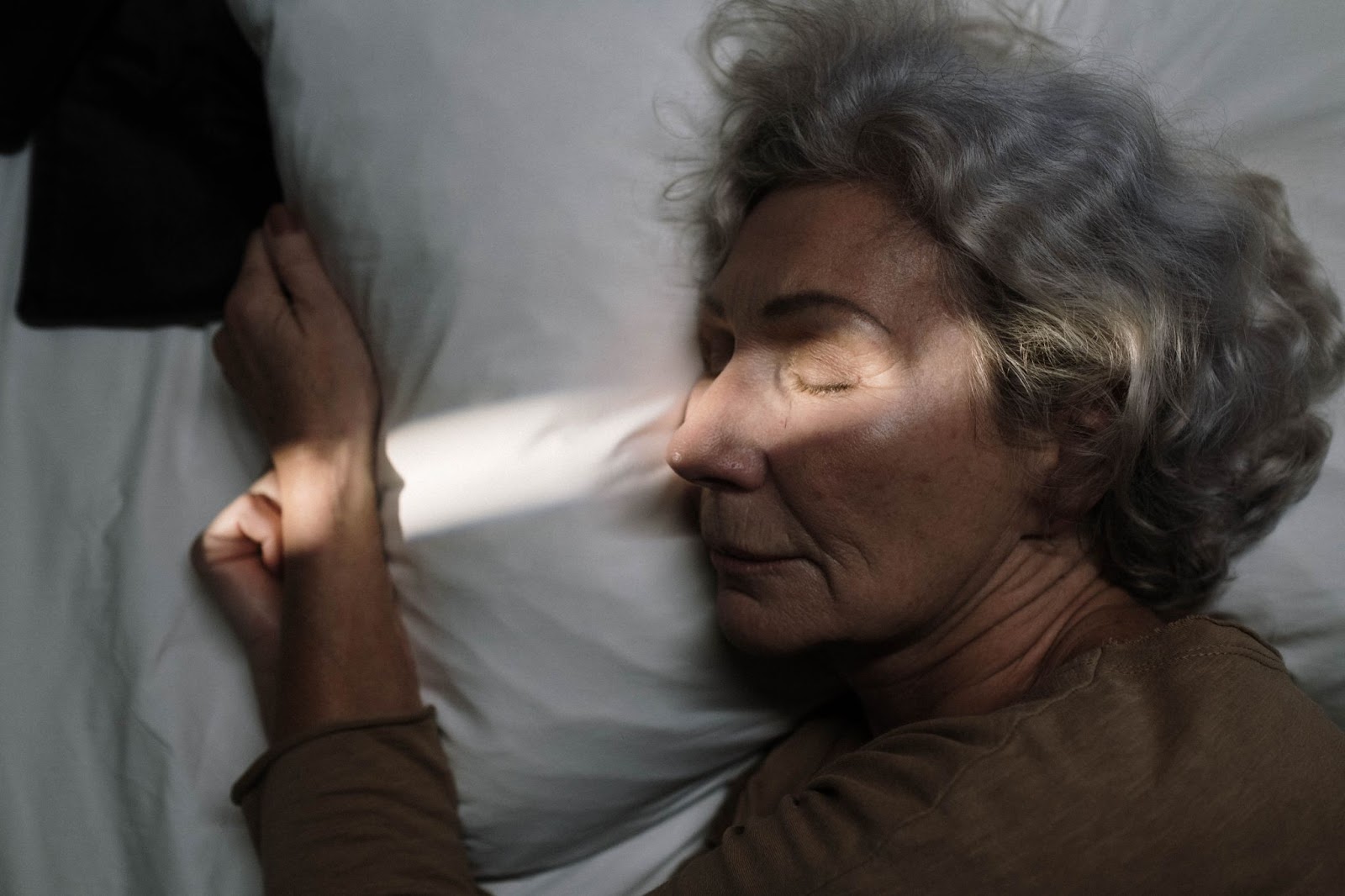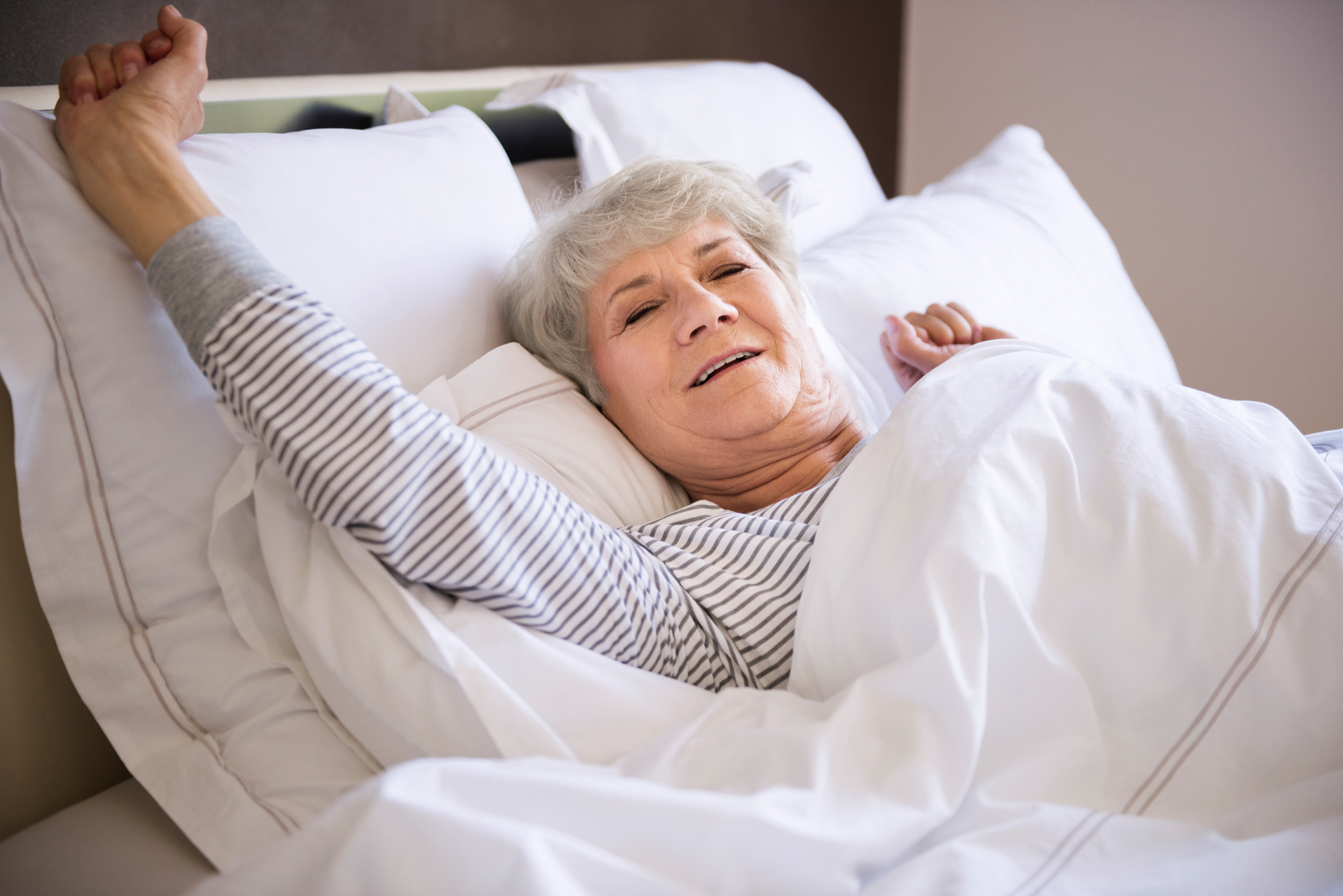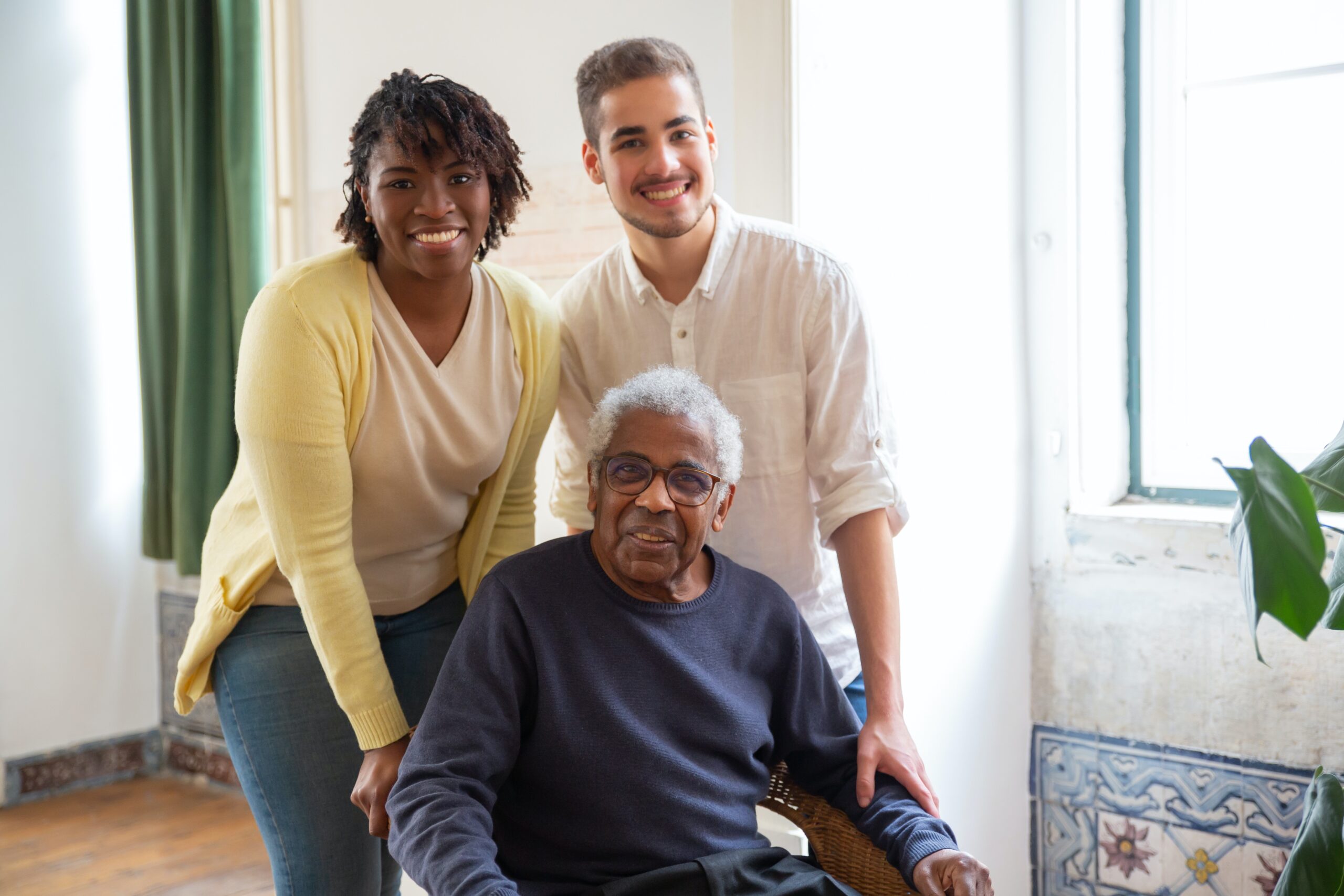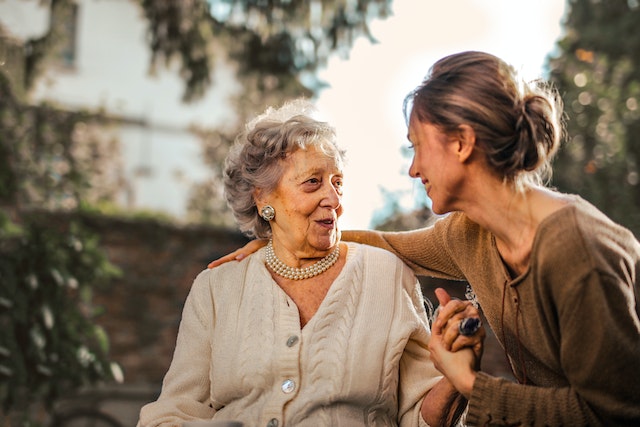Authored by Clara Carlson – Photo by Ron Lach, www.pexels.com/photo
As we age, maintaining good sleep health becomes increasingly important. Restful sleep plays a critical role in immune function, memory, and other aspects of health and well-being.
Despite this, many older adults struggle with sleep problems, often due to age-related changes in sleep architecture and various health issues.
Understanding Sleep Needs in the Elderly
As we age, our sleep patterns naturally change. Older adults may find themselves waking up earlier, experiencing lighter sleep, or having difficulty falling asleep.
These changes are normal to some extent, but persistent sleep disruptions are not a normal part of aging and can lead to significant health issues.
Creating a Comfortable Sleep Environment
Creating a sleep-friendly environment is a pivotal first step towards improving sleep health.
This involves assessing and modifying different elements of the sleep environment, including noise levels, light exposure, bedroom temperature, and most crucially, the quality of the mattress.
The Role of a Good Mattress
A high-quality mattress can significantly enhance sleep quality, providing the necessary support and comfort tailored to an individual’s preferred sleeping position and any specific physical issues like back or joint pain..
Latex Mattresses: A Great Option for Elderly Sleepers
Latex mattress is a popular choice among older adults due to their exceptional support and pressure relief properties.
These mattresses offer a unique blend of softness and support that aids in spinal alignment and pressure point alleviation.
Foam Mattresses: Conforming Comfort for the Elderly
Another good choice is a memory foam mattress. This type of mattress is known for its ability to conform to the body, providing personalized support and comfort.
Memory foam mattresses can help distribute body weight evenly, reducing pressure points and helping to alleviate pain.
Hybrid Mattresses: Offering the Best of Both Worlds
Hybrid mattresses combine the benefits of innerspring and foam or latex mattresses. They have a coil support core for a traditional feel and layers of foam or latex for additional comfort and pressure relief.
Hybrid mattresses offer a balance of support, comfort, and durability, making them suitable for many older adults.
Establishing Healthy Sleep Habits
In addition to optimizing the sleep environment, establishing healthy sleep habits, or sleep hygiene, can significantly improve sleep quality. These practices encourage a consistent sleep schedule, a balanced diet and lifestyle, and promote relaxation leading to better sleep.
Maintain a Regular Sleep Schedule
One key aspect of sleep hygiene is keeping a regular sleep schedule—going to bed and waking up at the same time every day.
This routine helps regulate the body’s internal clock, or circadian rhythm, enhancing sleep quality and duration.
Limit Daytime Naps
While it may be tempting to take long daytime naps, especially if nighttime sleep was insufficient, they can interfere with the sleep-wake cycle and inhibit nighttime sleep.
If a nap is necessary, try to keep it short, no more than 20-30 minutes, and take it early in the day to minimize its impact on your regular sleep pattern.
Stay Physically Active
Regular physical activity can help promote better sleep by boosting the effects of natural sleep hormones like melatonin. Exercise can help you fall asleep faster, get more deep sleep, and wake up less during the night.
Limit Alcohol and Caffeine
Both alcohol and caffeine can disrupt sleep patterns and lead to fragmented sleep. Caffeine, a stimulant, can make it hard to fall asleep and lead to waking up during the night.
Alcohol, while initially sedative, can interfere with the sleep cycle and lead to wakefulness later in the night.
Prioritize Relaxation and Wind-Down Time
Just as children have bedtime routines, adults can benefit from routines that signal to the body that it’s time to sleep. Establish a pre-sleep routine that promotes relaxation and calm.
This might include activities such as reading, taking a warm bath, listening to soothing music, or practicing meditation or gentle yoga. Avoid screens in the hour before bed, as the light emitted by phones, tablets, computers, and TVs can interfere with the body’s natural sleep-wake cycle.
Addressing Underlying Health Issues
Sleep problems in older adults can often be traced back to underlying health issues, such as sleep apnea, arthritis, or heart disease.
Promoting healthy sleep habits in the elderly is not only crucial for their overall well-being, but it also significantly enhances their quality of life.
Author: Clara Carlson
Clara is a school teacher, a yoga enthusiast, and a writer. Born in San Francisco and lived most of her life in Los Angeles. When not writing, she can be found hiking, taking the Metro, questioning this decision, and haunting local bookstores.











